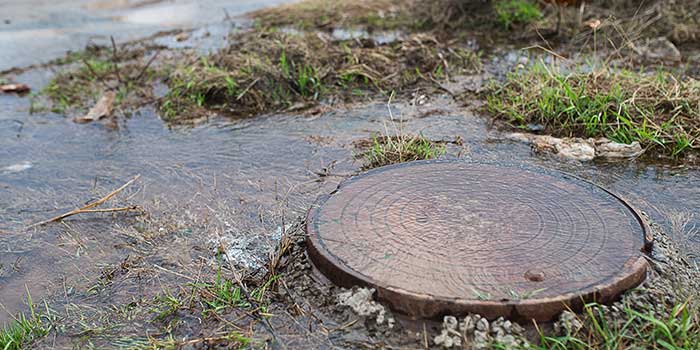For some properties, septic tanks aren’t an option – usually because the required sewage services aren’t within reach or can’t be connected.
When it comes to viable alternatives, there are two main choices that can take the place of a traditional septic tank.
Sewage Treatment Plants
Modern sewage treatment plants offer a higher standard of waste treatment, separating solids from fluids via mechanical, chemical and biological processes.
Some smaller properties may not be able to accommodate them but sewage treatment plants are the preferred option for the majority of projects.
Usually, sewage treatment plants will need to be emptied once a year to maintain their functionality.
Similarly, the system’s mechanical and electrical elements will also require an annual service.
Typically, the waste leaving the plant can be considered safe to discharge directly into a local watercourse.
Prior to installation of a sewage treatment plant, there may be a requirement to register with the Environment Agency for small domestic discharges.
This is free to do and can be completed online via Gov.uk – although there may be further planning permission and building notice needed.
Cesspits
Cesspits or cesspools are basically sealed underground tanks that collect wastewater and sewage.
These are infrequently found at domestic properties due to the difficulty of their installation and the lack of any processing function.
Put simply, it’s a big tank that fills with all the waste from your property and doesn’t treat it in any way.
This means it requires emptying on a regular basis, often at some inconvenience and cost.
To keep the regularity of these visits to a minimum, cesspits are specified as large as can be sensibly accommodated, meaning installation is expensive.
Because of these disadvantages, cesspits are only really considered as a last resort, in areas with restrictions to utilities.
Their long-term durability does at least mean that (aside from emptying), access to the cesspit shouldn’t be required too often.
So if you’re in an area with poor or zero access to electricity, soakaway, watercourse or storm drainage, a cesspit may be the answer.
Otherwise, it’s more likely that a sewage treatment plant will be suitable for your requirements.
Ready to talk about septic tank alternatives?
If you think your property requires something other than a septic tank, it may require a site survey to confirm your options.
If you’d like to speak to a professional about next steps or arrange a survey, please get in touch today.
